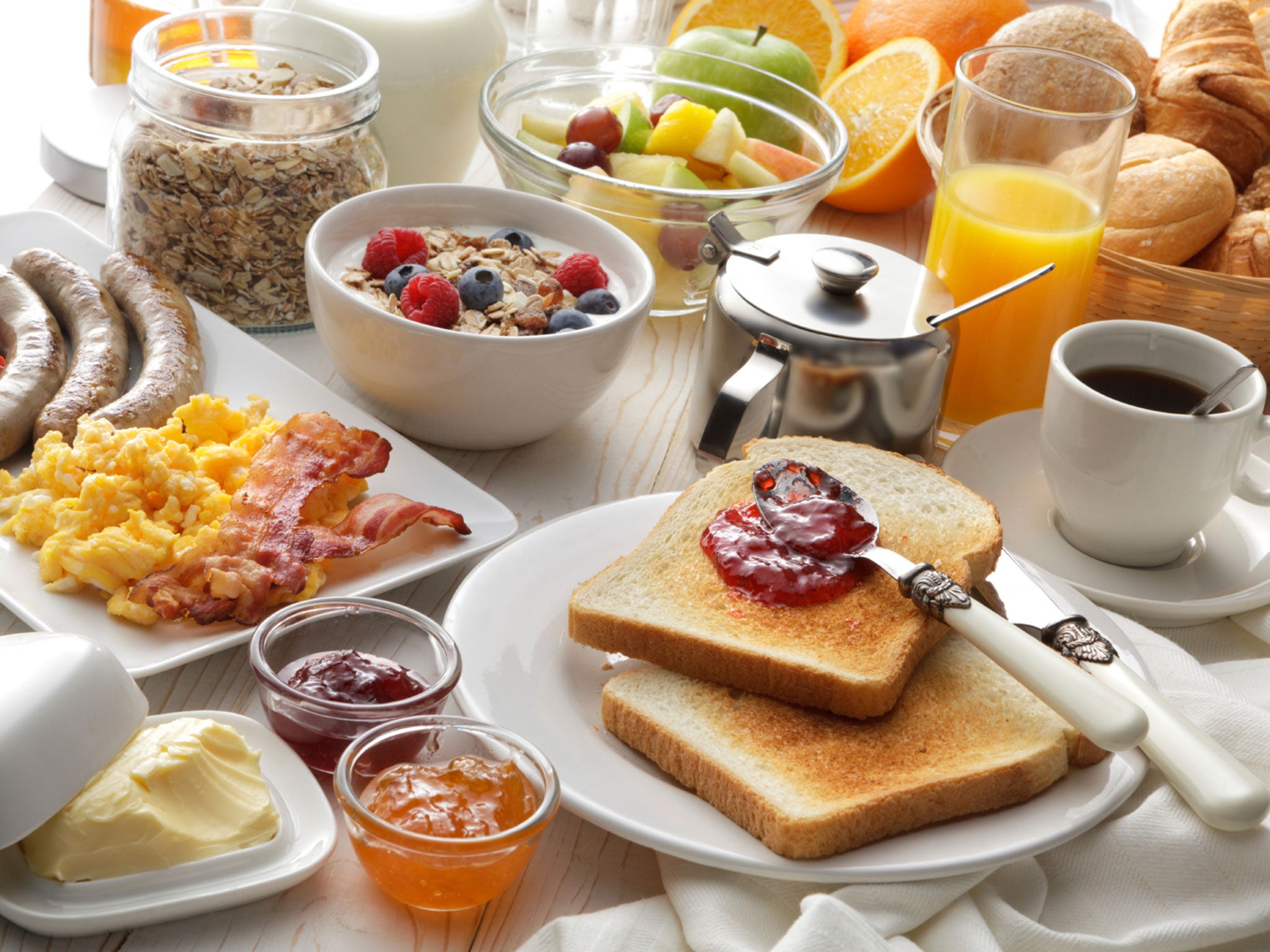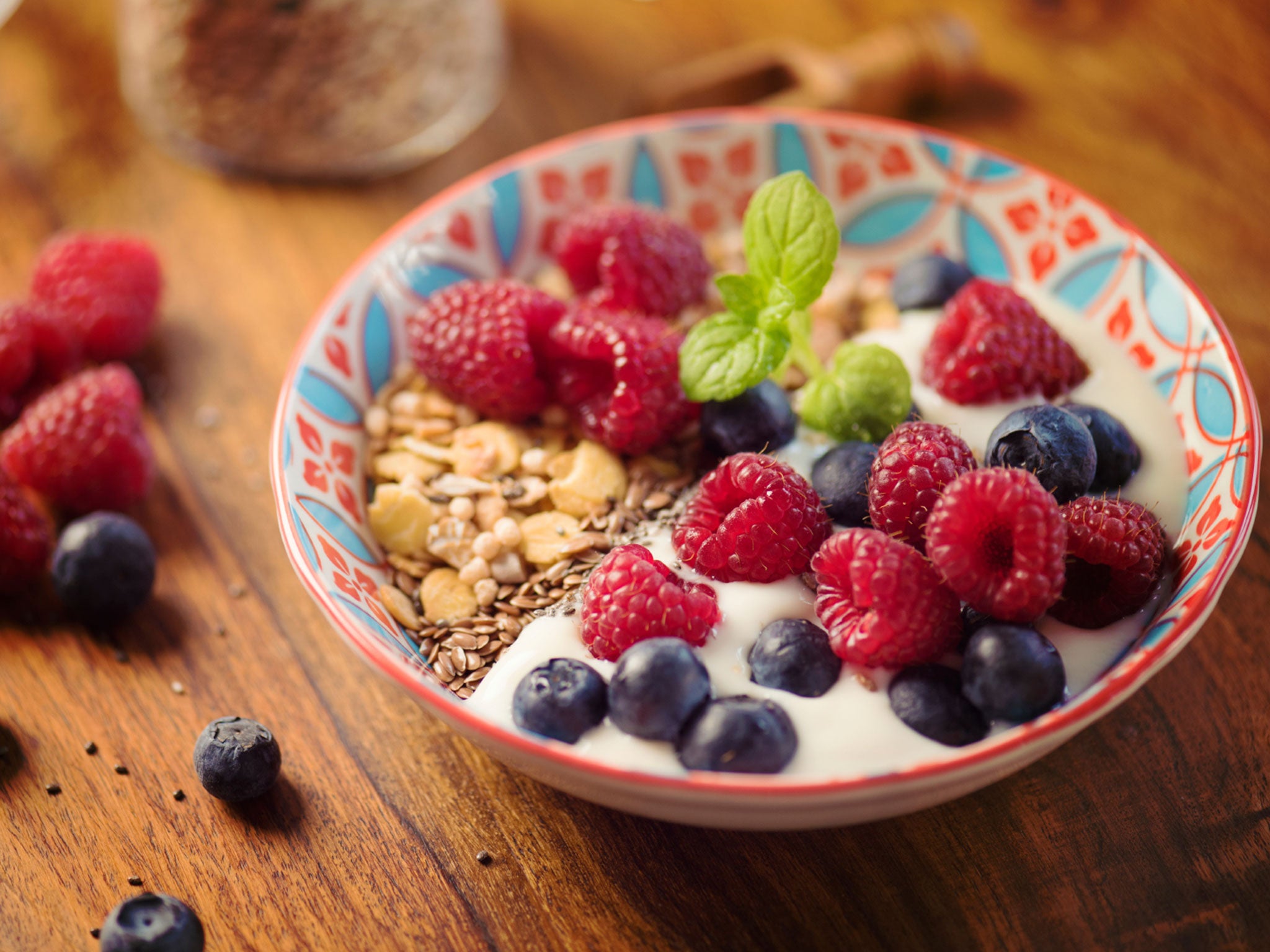What should I eat for breakfast?
Everything you need to know about the first meal of the day

“Breakfast is the most important meal of the day”, or so the saying goes.
But experts have debated whether this adage is true, and if it is helpful to describe a particular meal as more important than any other.
As is the case with maintaining a healthy lifestyle overall, the answer to what or if you should eat breakfast is different for each person. The bottom line is whether it will change what you eat as the day winds on.
Emma Stevenson, a Professor of Sport and Exercise Science, stresses: “Nutrition is very individualised and what works for one person does not necessarily work for another.
“People need to find a nutritional approach that suits their budget and lifestyle and that they can maintain over the long term.”
Chloe Miles, a dietician and spokesperson for the British Dietetic Association, adds that eating food in the morning is not good in itself, and that eating a chocolate bar would not have the same benefits as eating avocado on wholemeal toast.
But she highlights that breakfast is an important meal that gives the body and mind energy to start the day, and should be regarded as an opportunity to nourish the body.
"It is important not to skip any meal, however breakfast should provide about 20 to 25 per cent of your daily nutritional requirements. It is very important to start the day and break the overnight fast.
"Various trials have shown that people who eat breakfast tend to have a more balanced diet than those who skip it and are less likely to be overweight," she explains.
So, how should we approach breakfast? Below, Ms Miles explains what you need to know about the first meal of the deal.
What food groups should be included in breakfast?
“Breakfast should be based around the main food groups,” says Ms Miles.
The meal should ideally include starchy wholegrain breads or cereals. As sources of fibre, such foods can prevent heart disease, diabetes, some cancers, improve digestive health and reduce the risk of obesity, according to the NHS.
Breakfast is also a perfect chance to eat one of the five portions of fruit or vegetables you should aim to consume in a day. The same goes for bone-strengthening calcium found in milk and dairy products, as well as fortified foods.
Ms Miles adds that meat, fish, eggs or beans can act as important sources of protein which will keep you feeling satiated for longer, although they are not essential if time is tight.

I’m short on time, what should I eat?
If you are unable to cook in the morning, prepare a low-fat cream cheese bagel filled with smoked salmon which you can grab in the morning. This contains heart-healthy omega 3 fatty acids as well as protein.
Wholegrain cereal served with skimmed or semi-skimmed milk topped with a banana; instant porridge; and wholemeal toast are also good high-fibre options that are quick to prepare and scarf down in the morning.

I have a little spare time in the morning - what shall I prepare?
Baked beans on wholemeal toast is easy to prepare, as well as low in fat, high in fibre and protein. "Try and look out for low sugar and salt ranges,” says Ms Miles.
High in protein, fibre and complete with one of your five a day, scrambled egg with spinach or mushrooms and wholemeal is another healthy option.
Any tips from around the world?
Ms Miles highlights olives from Turkey, which contain monosaturated fats that have been proven to reduce levels of cholesterol and cut the risk of heart disease and stroke. Japanese breakfast are also praised for often including fish, which is low in saturated fat.
Join our commenting forum
Join thought-provoking conversations, follow other Independent readers and see their replies
Comments
Bookmark popover
Removed from bookmarks